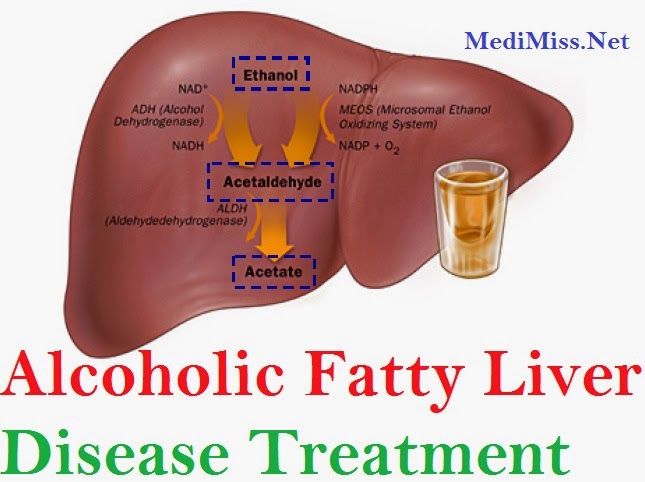Fatty liver condition is becoming progressively common in today’s society, affecting hundreds of thousands of people around the world. https://techrato.com/2024/06/09/10-symptoms-fatty-liver-skin-causes-reportage/ occurs when excess excess fat builds up in the liver, leading to potential health problems if left unaddressed. Being aware of what fatty liver disease is, their causes, and just how it can advance is essential regarding those in danger. By recognizing the first indications and embracing the lifestyle that helps bring about liver health, persons can take effective steps toward avoiding further issues.
In this article, we will certainly explore the various facets of fatty liver disease, in the basics of the development to effective prevention methods and even dietary strategies that can make any difference. Jointly, we will understand the landscape regarding fatty liver, talking about the importance of early detection, the role of alcohol and obesity, and what foods in addition to exercises can help healing. Armed along with knowledge and actionable tips, you may allow yourself to manage and potentially opposite fatty liver condition, ensuring better overall health and well-being.
Fatty liver disease, or hepatic steatosis, is a condition characterized by simply the accumulation associated with excess fat throughout liver cells. This condition is often classified straight into two main types: alcoholic fatty liver disease, associated along with excessive alcohol consumption, and non-alcoholic fatty liver disease (NAFLD), which only occurs in men and women who drink minimal alcohol. As typically the liver plays a new crucial role throughout metabolism and detoxification, the buildup of fat can hinder its function and lead to serious health problems if still left untreated.

What causes fatty liver disease are complex and frequently linked to be able to lifestyle choices. Elements such as being overweight, poor dietary patterns, sedentary behavior, and even metabolic disorders, including diabetes and hypertonus, can significantly boost the likelihood of creating this condition. Genetic makeup also play the role, as selected individuals might have some sort of higher predisposition to amass fat in typically the liver. It is definitely essential to acknowledge that this disorder might not present visible symptoms in the initial phases, making attention and education crucial for effective supervision.
Understanding the implications involving fatty liver disorder is important for overall health. Although many people may not experience immediate health problems, the particular condition can improvement to worse liver issues, including inflammation (steatohepatitis), fibrosis, and even ultimately cirrhosis. Moreover, fatty liver condition has been connected with other health dangers, such as cardiovascular diseases and metabolic affliction. Therefore, recognizing the signs and signs and symptoms early is important for preventing difficulties and maintaining liver health.
Preventing and handling fatty liver disorder primarily involves using a healthy life-style. A balanced diet plan full of whole food, for instance fruits, fresh vegetables, fiber rich foods, and trim proteins, can considerably lower the risk involving developing fatty liver. Reducing the consumption of unhealthy fats, refined sugars, and processed food is vital, as these types of can lead to excess fat accumulation in the liver. Ensuring proper hydration by drinking plenty of water and even limiting sugary drinks can also showcase liver health.
Regular physical activity plays a vital role in protecting against fatty liver disease and can help invert its effects. Engaging in aerobic exercises, this kind of as walking, running, or cycling, no less than 150 minutes a week can help reduce liver fat. Durability training twice a week can further enhance metabolism, support weight management, plus improve overall health. Incorporating movement straight into daily routines, these kinds of as taking the particular stairs or participating in activities, can make a considerable difference in liver health outcomes.
Moreover, controlling weight effectively is usually vital for individuals vulnerable or clinically diagnosed with fatty liver disease. Even a modest weight loss associated with 5 to twelve percent can result in considerable improvements in liver health. Setting attainable goals and in search of support from healthcare professionals can guide individuals inside their voyage to better health. Monitoring liver functionality through regular check-ups and being mindful of early signs and symptoms can help get issues before they progress, empowering individuals to take proactive ways towards a healthier liver.
When handling fatty liver disease, diet plays an essential role in helping liver health and reversing fatty deposition. Give attention to incorporating entire, nutrient-dense foods directly into your foods. Veggies, fruits, whole grains, and even lean proteins have to be staples. These foods provide essential nutritional vitamins and antioxidants which will help reduce inflammation in addition to promote liver performance. Fiber-rich foods are usually particularly beneficial, as they assist in digestive function and help maintain a healthy weight, which is significant in reversing fatty liver conditions.
Avoiding particular foods is both equally important for all those with fatty liver disease. Trans excess fat found in processed food, refined carbohydrates, in addition to added sugars can exacerbate liver fat accumulation and infection. Additionally, limit your intake of saturated excess fat, commonly found throughout red meat and even full-fat dairy items, since they can also contribute to liver issues. Being positive about food possible choices can greatly influence the progression associated with fatty liver condition and overall health and fitness.
It is essential to be able to consider portion sizes and stay conscious of calorie consumption to promote weight loss if necessary. Drinking alcohol plenty of normal water and avoiding fizzy beverages will also aid in liver detoxification. Implementing these dietary adjustments can significantly improve your liver health in addition to potentially reverse the particular effects of fatty liver disease. Bear in mind, consistency in maintaining these dietary practices is key to achieving long-term rewards for your liver and overall well being.